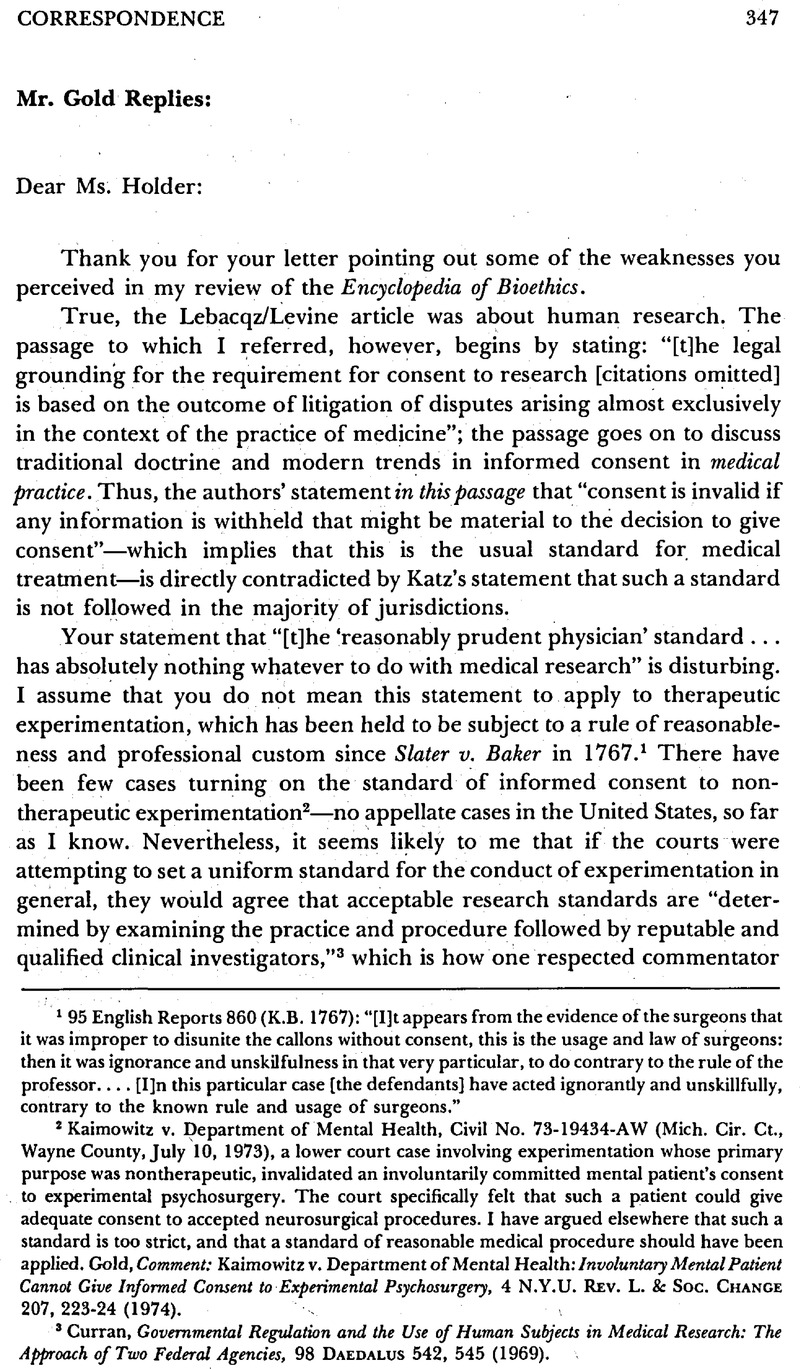No CrossRef data available.

1 95 English Reports 860 (K.B. 1767): “[I]t appears from the evidence of the surgeons that it was improper to disunite the callons without consent, this is the usage and law of surgeons: then it was ignorance and unskilfulness in that very particular, to do contrary to the rule of the professor…. [I]n this particular case [the defendants] have acted ignorantly and unskillfully, contrary to the known rule and usage of surgeons.”
2 Kaimowitz v. Department of Mental Health, Civil No. 73-19434-AW (Mich. Cir. Ct., Wayne County, July 10, 1973), a lower court case involving experimentation whose primary purpose was nontherapeutic, invalidated an involuntarily committed mental patient's consent to experimental psychosurgery. The court specifically felt that such a patient could give adequate consent to accepted neurosurgical procedures. I have argued elsewhere that such a standard is too strict, and that a standard of reasonable medical procedure should have been applied. Gold, , Comment: Kaimowitz v. Department of Mental Health: Involuntary Mental Patient Cannot Give Informed Consent to Experimental Psychosurgery, 4 N.Y.U. Rev. L. & Soc. Change 207,223-24(1974).Google Scholar
3 Curran, , Governmental Regulation and the Use of Human Subjects in Medical Research: The Approach of Two Federal Agencies, 98 Daedalus 542, 545 (1969).Google Scholar
4 272 Mich. 273, 261 N.W. 762 (1935).
5 “The Associate Editors and I, working collaboratively, exercised full autonomy in setting editorial policies, selecting contributors, and approving the contents of the work.” Reich, Introduction, in Encyclopedia of Bioethics at xii.
6 “Sydney Shoemaker on the Mind-Body Problem, Antony Flew on Evolution and R. M. Hare on Utilitarianism are likely to be worth reading in any context, but some contexts are more appropriate than others … . [I]t is not clear that the clients for whom the Encyclopedia is chiefly intended—medical students and practitioners, nurses, lawyers, social workers, journalists, politicians—will either want or need to be led into any of the more academic controversies of philosophy.” Editorial: The Straw and the Camel, 54 Philosophy 277, 278 (1979).CrossRefGoogle Scholar
7 “Readers who are primarily concerned with philosophy know where else to find abundant material on these themes … .” Id.
8 Hutchins, , Is Democracy Possible?, 9 The Center Magazine 2, 6 (January/February 1976).Google Scholar